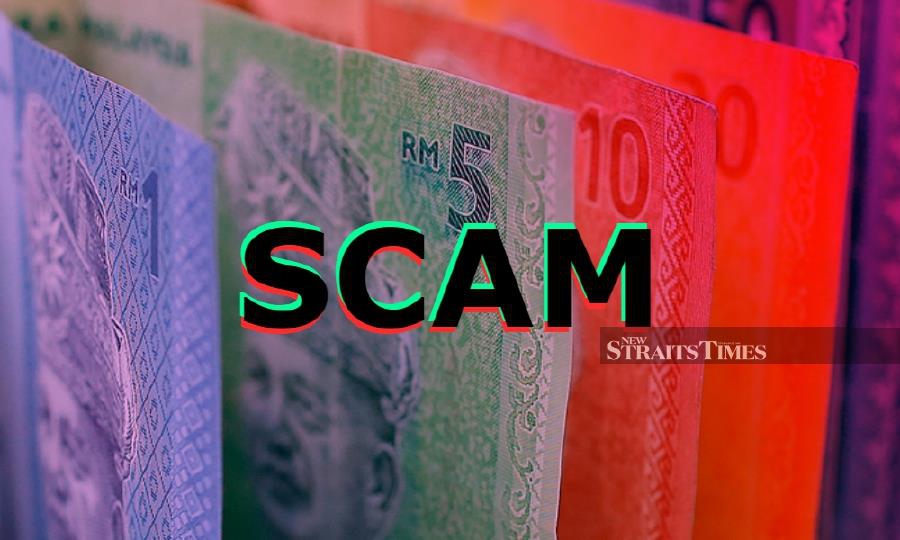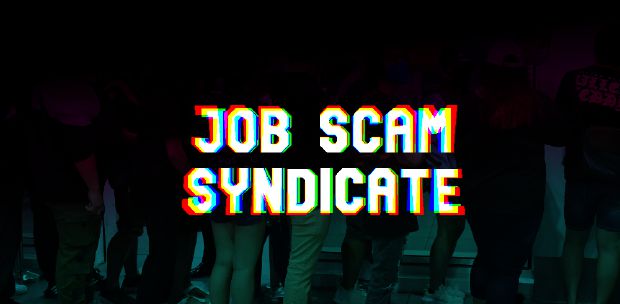Every few days, we hear or read about unsuspecting people getting scammed.
The matter has become so rampant that it's being treated like common every-day occurrences.
But it's no fun to be scammed and have your hard-earned money "floated" away because of being easily persuaded or gullible or because scammers really made things sound so authentic.
One of the latest ruses has scammers claiming to have accidentally put money into their intended victims' bank accounts, then having someone call the unsuspecting person to ask for the "mistaken transfer" to be corrected.
But it's only the opening gambit. A convincing voice, either male or female, would then claim that the soon-to-be victim had been involved in some sort of crime, usually a violation with heavy penalties, like money-laundering.
Or an outlandish claim of having bought illegal cryptocurrencies!
When one has just a couple of thousand or even more in the bank account, the mind goes numb and knees crumble when you are told the penalty for the offence is no less than RM5 million or 15 years in jail, or both!
That's when the scammers prey on one's vulnerability or gullibility, by claiming involvement in a crime. The authenticity is reinforced by introducing other actors — "police sergeants", "chief inspectors", "deputy public prosecutors" and even "senior managers" from Bank Negara Malaysia!
After hearing these "authoritative narratives", even the unconvinced can become somewhat convinced to be led up the garden or rocky path.
The soon-to-be victims would be persuaded to transfer money into a so-called trust account that has been opened by the authorities for investigations, purportedly to help targeted individuals climb out of their quandary.
That's all humbug. They are mule accounts opened by individuals who are knowingly or unknowingly linked to the criminals.
A "mule account" is a bank account someone has allowed others to control by handing over their ATM card's pin numbers or the online banking password. Criminals use these accounts to receive money from their scamming.
In 2021, 29,769 bank accounts in Malaysia were found to be mule accounts.
Now, this is the crux of my argument here. What are the authorities doing about this?
Scammers need to have a conduit to siphon out the money. So they use the accounts of suspecting or unsuspecting individuals.
This is what I don't understand. Why can't the mules face the music as well? We don't often hear of investigations into accomplices. Are they really innocent?
Victims' first line of thought for the authorities or bank concerned will definitely be, what are you going to do with the person who allowed his or her bank account to receive my hard-earned money?
So what are the authorities or banks doing about the accomplices, the first point of contact for the theft? Surely they would know of the person or persons who persuaded or coerced them to open an account for fraudulent funds transfers.
Some months back, some official said account mules would be blacklisted, and this meant they wouldn't be able to open bank accounts. Only blacklisted? That's getting off lightly!
To put it simply, an accomplice is someone who helps another commit a crime. So the mule account holder and scammers are partners in crime!
Accomplices should be heavily penalised as well.
They can't feign ignorance once the authorities bring at least 2,976 individuals, or 10 per cent of the 29,769 accomplices, to court for a start!
If the authorities are serious about plugging the loophole, they should get these accomplices to see the seriousness of their seemingly innocent actions so that others would be deterred. If the law needs to be changed, why not?
For those lucky enough not to have been scammed, appreciate that instead of detesting the popular saying "the only things you regret in life are the things you didn't do".
In this case, just stay calm in the face of false allegations because you didn't do it!
The writer is a former Bernama chief executive officer and editor-in-chief
The views expressed in this article are the author's own and do not necessarily reflect those of the New Straits Times






